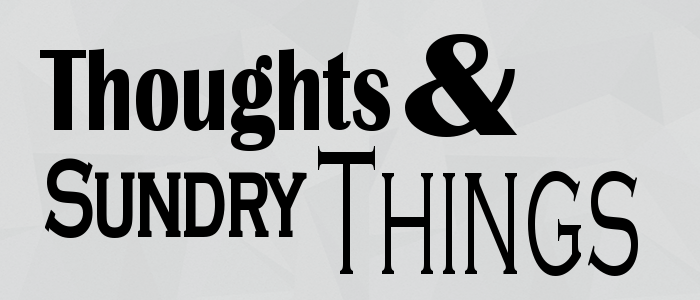Roger Ebert died today after a long battle with thyroid cancer. I was honestly too young to have paid much attention to his movie reviews, but he and Gene Siskel’s iconic “thumbs up” or “thumbs down” method of critique has become ingrained in our cultural imagination. Indeed, it has outlived them both.
I found Ebert’s article on death (first published in his memoir Life Itself: A Memoir and reproduced at Salon.com) moving in both its thoughtfulness and matter-of-fact tone. As an agnostic, I often wrestle with the existential questions of how to conceptualize life and death absent of any definitive God or known afterlife, especially as of late. My grandfather – a gruff, grizzly sort of man with a voice and cadence straight out of his favorite Westerns – was recently diagnosed with terminal lung cancer. I’m honestly not surprised. The man smoked like a chimney since the age of fourteen. We used to joke that he’d survived this long because he was pickled, preserved for posterity by large quantities of nicotine Life caught up with him, though. My grandmother died a few years back due to complications from diabetes and heart disease. They had been married for over fifty years and had eight children together. Grandpa has made known that he wants one more good summer of golf and no more chemo. He’s decided to die on his own terms. I have no idea what he thinks about God, death, or the notion of an afterlife.
I hope that I have years and years of living left. I mean, I’m young, only thirty one. I eat healthily, run regularly. My spitfire daughter is only eighteenth-months old. What’s more, though, I haven’t made up my mind as to what living is all about, let alone dying.
And this is why I found certain parts of Ebert’s article so poignant. He didn’t need God or religion to give life meaning, and he wasn’t torn up with questioning what happens after death.
Of secular morality, he has this to say,
‘Kindness’ covers all of my political beliefs. No need to spell them out. I believe that if, at the end, according to our abilities, we have done something to make others a little happier, and something to make ourselves a little happier, that is about the best we can do. To make others less happy is a crime. To make ourselves less happy is where all crime starts. We must try to contribute joy to the world. That is true no matter what our problems, our health, our circumstances. We must try. I didn’t always know this and I am happy I lived long enough to find it out.
Now, I’m not totally at ease with the bit about making people less happy being a crime, because happiness is a fickle and subjective emotion. Some unhappiness is necessary, might even be what is most needed in the long run. I wholeheartedly agree, though, with his assertion about trying to “contribute joy to the world.” That seems as solid a life goal as any, to try as much as possible, in whatever situation, to leave the world a better place for having been in it.
On death, Ebert pretty much takes an atheist’s position. We die just as we came into the world: uncognizant, unknowing. I don’t claim to know if Ebert is right. That’s why I’m agnostic and not atheist. Yet, he ultimately provides the following Whitman quotation, which, as a total book nerd, I took a shine to:
I bequeath myself to the dirt to grow from the grass I love,
If you want me again look for me under your boot-soles.
I would need to read the entire poem to best understand these quoted lines, but, from this bit, I don’t necessarily think it points to a complete end, to mute nonbeing. What does it mean to die and decompose? For our bodies to unravel their molecular threads and be made new again in some other form, perhaps in some other life? I don’t have an answer to this question, but, frankly, I’m not upset by that. Hopefully I’ll have the privilege of pondering it for many years to come.

Kids These Days and Their Seedless Watermelons | Thoughts and Sundry Things
[…] have to understand, though, Grandpa isn’t what I’d call cuddly or easy going. In an earlier post, I characterized him as “a gruff, grizzly sort of man with a voice and cadence straight out […]
I Would Say “Fuck Cancer,” But I Don’t Think It Deserves Something That Enjoyable | Thoughts and Sundry Things
[…] Grandpa K’s lung cancer comes after years of chain smoking. He’s still as lovingly gruff and curmudgeonly as ever, and I’m not ready to lose him. […]